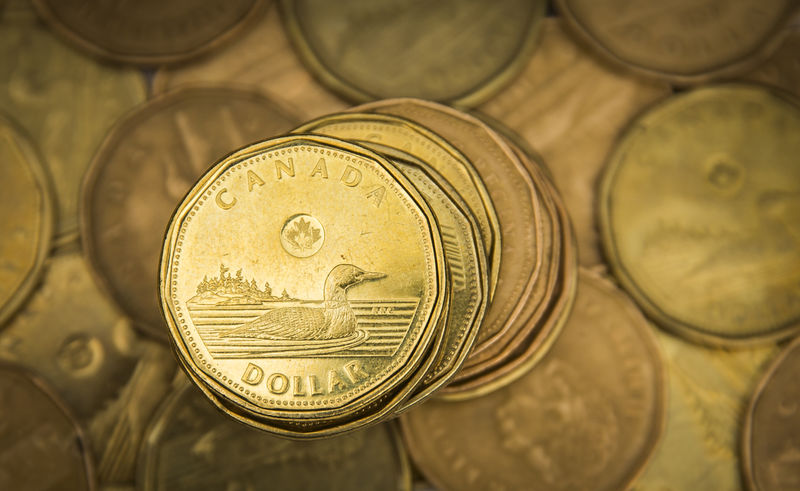TORONTO (Reuters) - The Canadian dollar was little changed against its U.S. counterpart on Friday, holding near its strongest level since July, as oil prices rose for the third straight day and domestic data showed that home prices edged higher in September.
At 10:08 a.m. (1408 GMT), the Canadian dollar was trading nearly unchanged at 1.3135 to the greenback, or 76.13 U.S. cents.
The currency, which notched on Thursday its strongest intraday level since July 31 at 1.3131, traded in a narrow range of 1.3132 to 1.3147.
For the week, the loonie was on track to rise 0.5% after Britain reached a deal to avoid a disorderly divorce from the European Union that could have hurt the global economy.
Canada runs a current account deficit and is a major exporter of commodities, including oil, so its economy could benefit from a pick-up in global growth.
The price of oil, one of Canada's major exports, was supported by bullish signals from both the Chinese and U.S. refining sectors and a North Sea crude disruption that proved temporary. U.S. crude oil futures (CLc1) rose 0.8% to $54.37 a barrel.
The Teranet-National Bank Composite House Price Index rose 0.1% in September from August. After correcting for seasonal pressure, the index was higher for the second straight month.
The Bank of Canada, which will make its next interest rate decision on Oct. 30, has said that housing activity has recovered more quickly than expected, helped by lower mortgage rates.
Canadian government bond prices were mixed across the yield curve, with the two-year (CA2YT=RR) up 0.5 Canadian cent to yield 1.647% and the 10-year (CA10YT=RR) falling 2 Canadian cents to yield 1.563%.
On Thursday, the 10-year yield reached a three-month high intraday at 1.608%.
Canadian Prime Minister Justin Trudeau should resign if he fails to win the most seats in next week's election, his main rival, Conservative opposition leader Andrew Scheer, said.

Polls show Trudeau's Liberals in a statistical tie with the Conservatives four days ahead of Monday's vote.